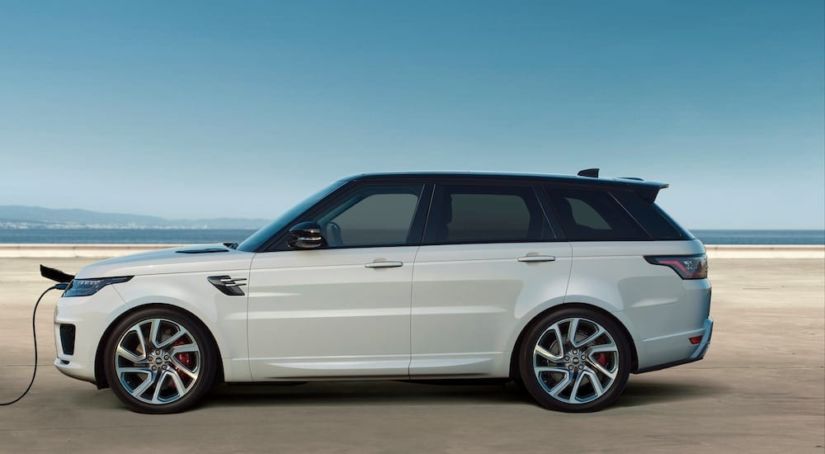Land Rover is by no means a small car brand. On the contrary, a Land Rover will be a driver’s first car they ever lay eyes on for more than half the people in the world—so to say that Land Rover is a household name would be a massive understatement. Few cars have claimed such popularity, especially in Britain, where the Land Rover plays a big role in popular culture, as well as in the U.S., where many imagine the Land Rover to be the kind of car Indiana Jones would drive.
Naturally, given its popularity, a 2018 Land Rover may be one of your first choices for a new vehicle. It’s certainly not a bad option, but there are many factors you should consider when choosing your first new Land Rover vehicle. For example, Land Rovers are known to be difficult to maintain, and troubleshooting one can require a discerning eye, making this model not the best choice for novice car owners to choose.
The Land Rover Puts the “Utility” in Sport Utility Vehicle
One of the first things a new car buyer should keep in mind when purchasing a vehicle is the specific tasks the vehicle will be used for as part of their everyday routines or occasional hobbies and trips. A Ferrari isn’t typically used to pick up a middle school soccer team. By the same token, a buyer doesn’t typically purchase a Land Rover unless they have significant cargo to haul.
What will you be using your Land Rover for? Do you have a large family and need a lot of seating space? Or will you be driving in a variety of environments, making “off-road” more than just a weekend diversion or a fancy phrase to throw around?
It is important to remember that Land Rovers and similar vehicles come in all shapes and sizes. There are subcompact SUVs as well as larger ones. Each type of luxury vehicle has its own pros and cons for different drivers based on the model’s unique composition, features, and build. Many dealerships also offer customization of individual vehicles, allowing consumers not only to customize the price point but also the functionality of the vehicle—as well as the availability of parts when it comes time to repair or replace.
Rover vehicles are designed to handle tough, the multifaceted terrain in a variety of weather conditions, from bright and sunny to freezing and snowy. One of Land Rover’s ideal options for this purpose is the Range Rover Sport, which offers all-wheel drive and a terrain response system devised to adapt to different driving environments. The power behind a Land Rover vehicle is nothing to sneeze at, either, with the Defender 90 Station Wagon boasting a capacity of no less than 2,198 pounds.
Don’t Forget to Consider the Cost
With the purchase of any new vehicle, you should evaluate some important financial factors before moving forward. A Land Rover car does not come cheaply, with vehicles running up to six figures when fully equipped. Consumers will find some models with pricing more comparable to other standard vehicles, but generally, the sticker won’t go lower than the $30,000 range. The Land Rover is a versatile, multipurpose vehicle, and the value of its wide range of practical use should be a factor you bear in mind when evaluating the price. The average maintenance cost of a car can get rather high when you drive a supreme luxury vehicle, such as a Range Rover Sport. Driving (and maintaining) your Land Rover each year can have associated costs of more than $9,000, assuming an average amount of vehicle use.
Despite the Land Rover’s reputation for durability, these sturdy vehicles are also infamous for certain mechanical issues. The air suspension, in particular, is practically guaranteed to need replacing in six to 10 years. Many drivers choose to exchange the swanky air suspension system included with their Land Rover, when it gives out, for a more run-of-the-mill coil spring setup for improved durability. Just considering maintenance costs alone, taking care of one of these vehicles requires more attention and inspection than some drivers may feel comfortable taking on. Because of this maintenance level, you may scrutinize how much you’ll use your Land Rover for its many practical and amusing uses to weigh the benefits you’ll get from your investment.
The maintenance costs we’ve discussed don’t take into account the other common (though often overlooked) costs associated with long-term car ownership, such as gas mileage. Outside of their hybrid varieties, Land Rovers are not especially known for stellar fuel efficiency. These vehicles consume a great deal of gasoline, and the associated fuel cost is an aspect of the purchase all prospective owners should keep in mind.
It is also important to note your initial estimates for car payments and general maintenance can be deceptive, as warranties and free maintenance trial periods expire—and needed service becomes more frequent and costly as a vehicle ages. In an effort to close a deal on an expensive luxury vehicle, unscrupulous dealers may offer a host of temporary fringe benefits. These temporary savings can sound enticing to customers who would like to drive a car of high quality while also saving money. A low starting cost can be attractive, but keep in mind that warranties eventually expire, and you should factor in replacing or maintaining the parts they cover as part of the overall cost of the vehicle when creating your budget.
Consumers often presume a certain amount of commonality and predictability in insurance costs. But these expenses can vary more widely than shoppers may expect, with regulations changing due to location, condition of the vehicle, or history of the driver. These are vital points to address before moving forward with any new vehicle, but it is especially important with any imported brand, such as Land Rover, because foreign-produced vehicles are generally more expensive to insure than domestic cars.
More than Just an SUV—Land Rover Is a Lifestyle
Land Rovers are distinguished in stature. (That’s a nice way of saying they take up a lot of room.) Even the smaller models have an imposing silhouette, with plenty of bulk and spread. Choosing whether you’ll drive a Land Rover requires addressing whether you have the lifestyle and parking space to accommodate such a large vehicle.
Land Rovers are comparable to Hummers in terms of the space they take up, and that is what any prospective buyer should keep in mind as they’re considering one. Concerns that seem insignificant when you’re first starting your purchasing journey, such as parking availability and your everyday routines—picking the kids up from school or getting coffee—become much more relevant to the decision when you’re thinking about selecting a vehicle of such substantial size.
Land Rover is a famous brand for a reason—and it is one of your best options for a first luxury vehicle (or your second, or third…). But choosing one is a highly involved process, with multiple facets you’ll need to weigh and consider. Once you have, if you decide to get a Land Rover, you’re engaging with something genuinely special. A Land Rover is more than just an average car; it’s a car associated with rugged travel and durability you can count on, on the road or off.



